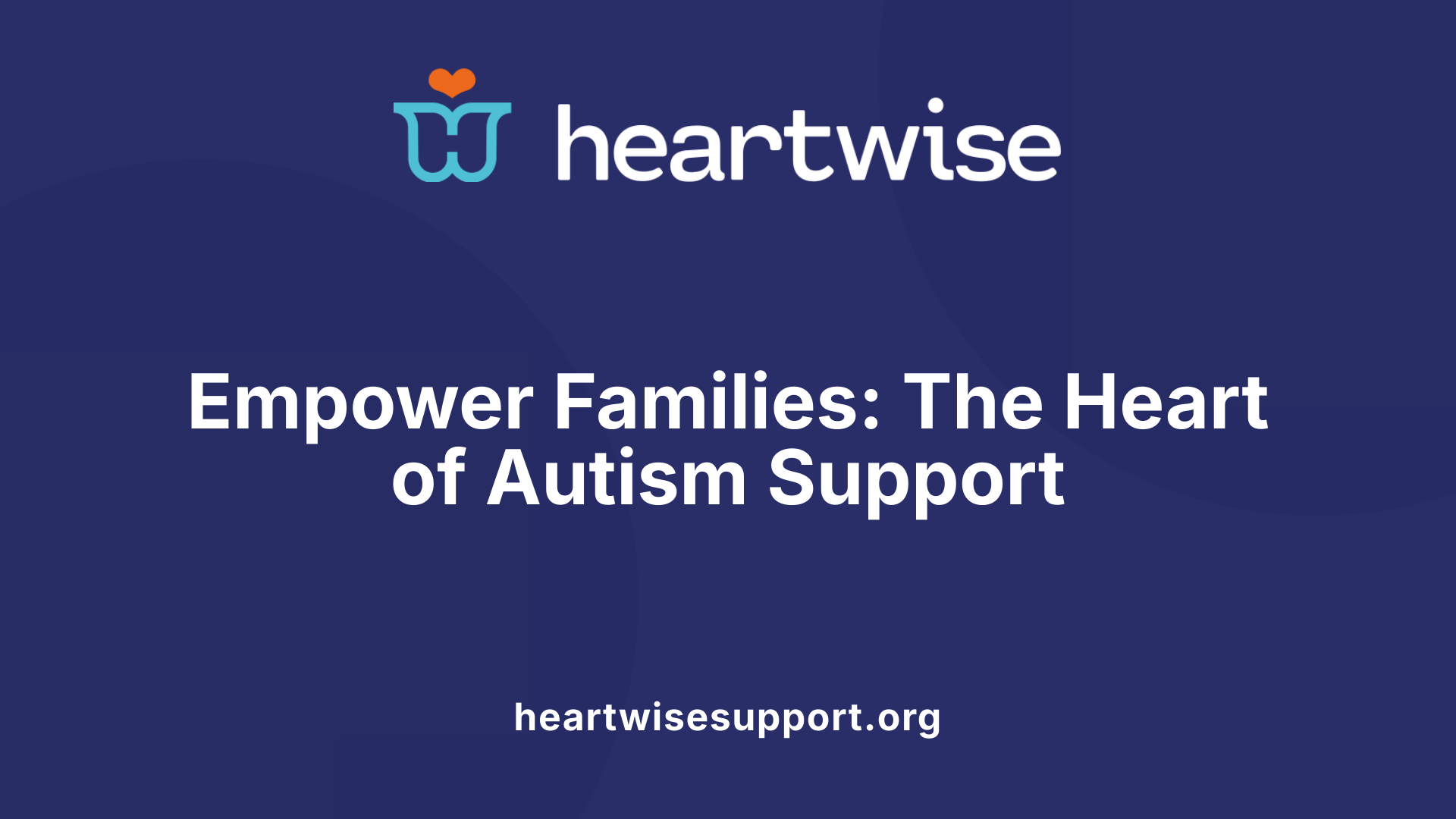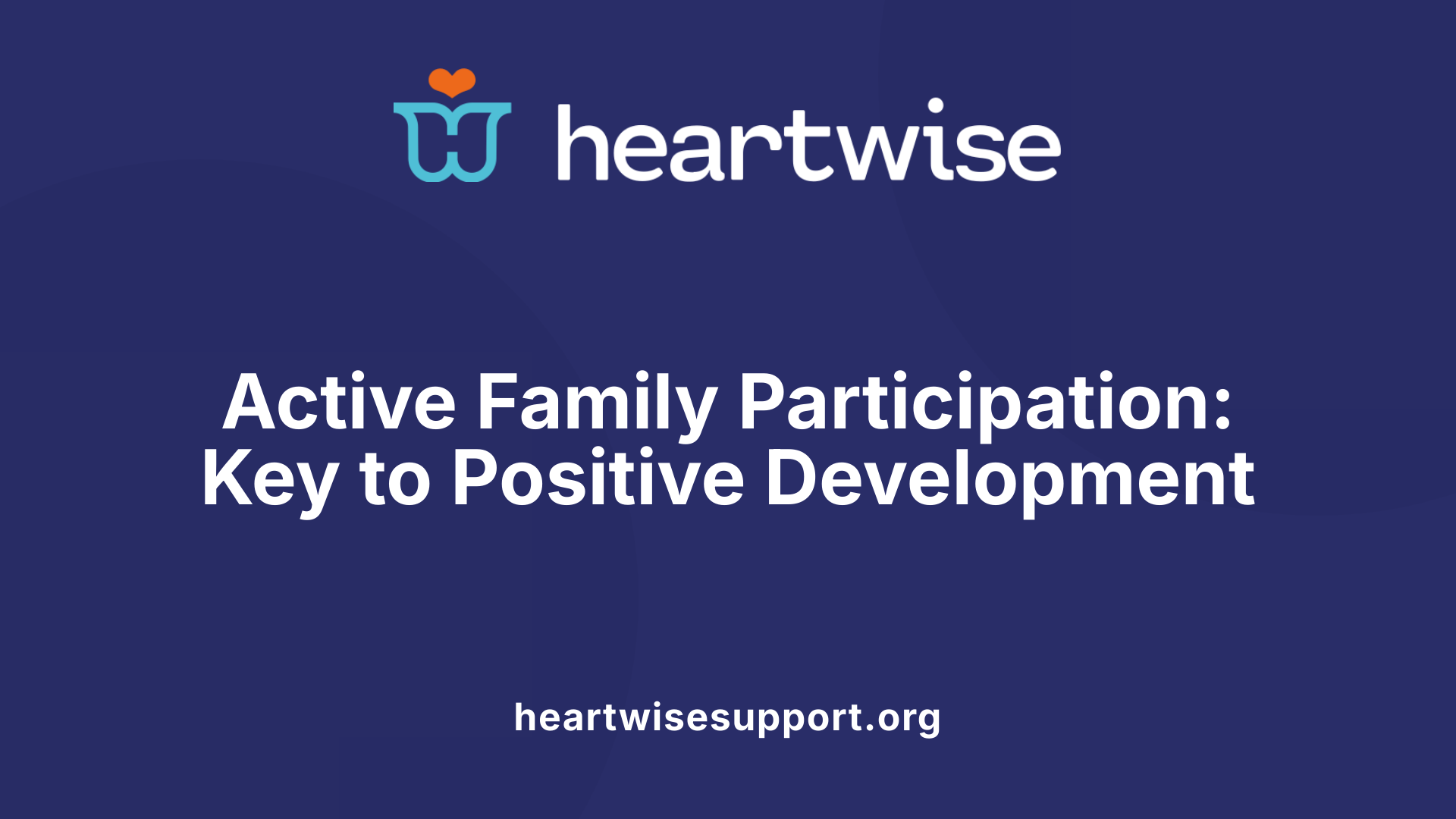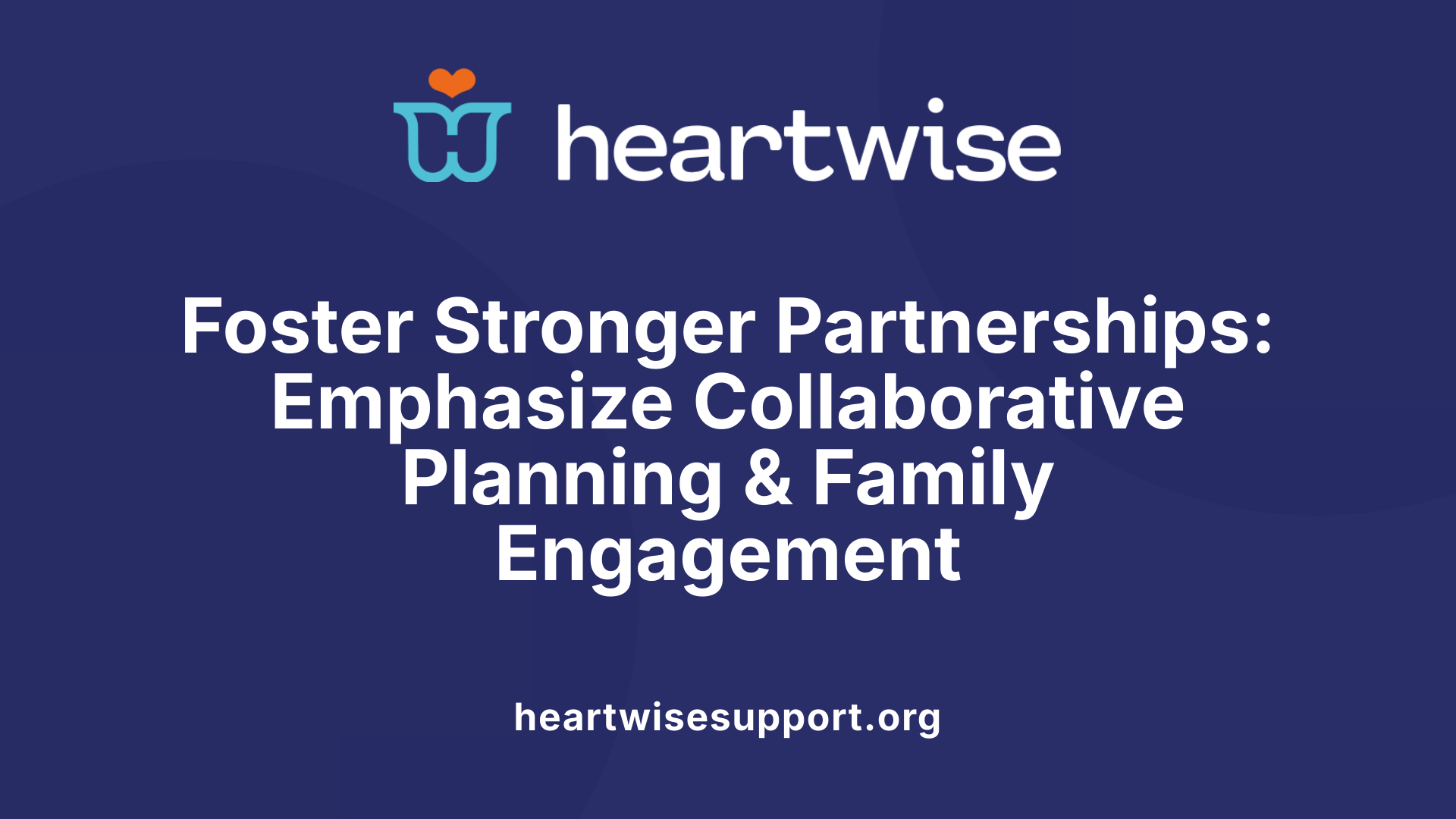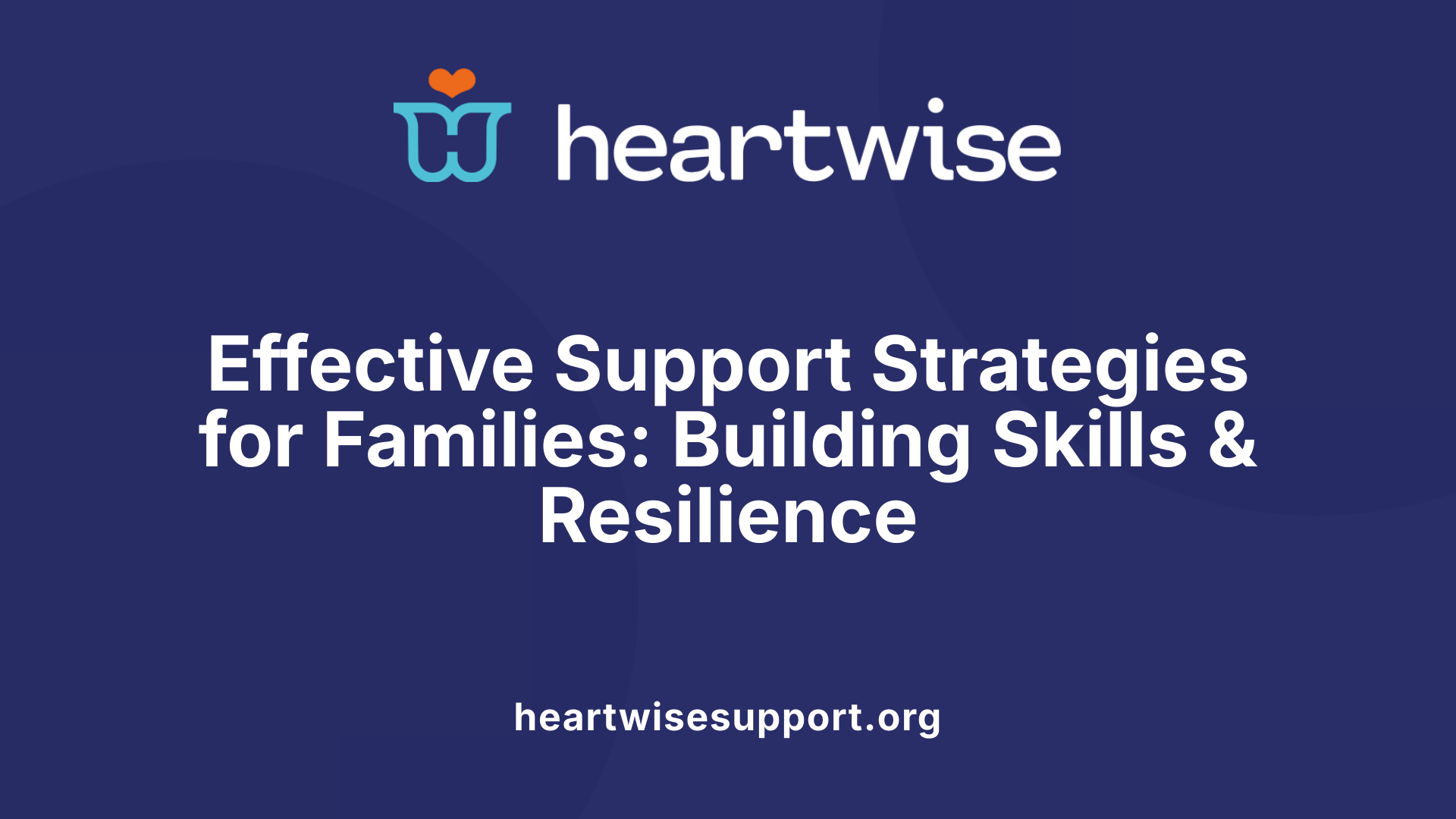Understanding the Crucial Role of Family Education in Autism Support
Family education is a fundamental component of comprehensive autism support, influencing developmental outcomes, management strategies, and long-term success. Engaged and well-informed families not only implement effective interventions at home but also foster collaborative environments with educators and clinicians, ensuring tailored and culturally sensitive support systems. This article explores the pivotal role of family education in supporting individuals with autism across various life stages, the strategies involved, challenges faced, and the evidence underpinning its importance.
The Central Role of Family Involvement in Autism Support

What is the role of family involvement in supporting individuals with autism?
Family involvement is essential in providing effective support for individuals with autism spectrum disorder (ASD). Parents and family members often serve as the primary caregivers and coordinators of services, navigating complex systems to access interventions and support tailored to the child's needs.
A significant aspect of family involvement includes integrating therapeutic strategies into daily routines at home and school. Caregivers actively participate in implementing behavioral interventions, communication exercises, and social skills development. Evidence-based practices demonstrate that when families are engaged in therapy and routine activities, children with ASD tend to show improvements in language, social interaction, and emotional regulation.
Providing caregivers with proper training and resources empowers them to carry out intervention techniques confidently. For example, programs that involve teaching parents how to use visual aids or reinforcement strategies lead to more consistent support, positively influencing behavioral and developmental outcomes.
Emotional and social support for families themselves is equally important. Families often face high levels of stress and mental health challenges, given the demands of managing ASD-related behaviors, navigating service systems, and financial pressures. Access to support networks, including parent groups such as Autism Speaks or the Asperger Syndrome and High Functioning Autism Association, offers a community where caregivers can share experiences, exchange information, and gain emotional resilience.
Community resources like workshops, support groups, and educational programs foster a stronger sense of belonging and knowledge. These networks also provide vital assistance during life transitions, such as moving from childhood to adolescence or planning for post-secondary education.
Furthermore, fostering open communication between families and educators ensures consistent support across environments. Teachers and therapists benefit from understanding family insights about the child's strengths, needs, and cultural backgrounds, which in turn guides tailored intervention plans.
Involving families in decision-making processes—such as Individualized Education Program (IEP) meetings—strengthens commitment and aligns efforts across home and school settings. Techniques like daily communication notebooks and family meetings help coordinate strategies and address challenges promptly.
Overall, active family participation, supported by education, resources, and community engagement, considerably enhances the developmental trajectory for individuals with autism. The combined efforts of caregivers, educators, and community members create a comprehensive support system that addresses behavioral, communicative, and emotional needs, leading to better long-term outcomes.
Family Participation and Its Impact on Developmental Trajectories

How does family participation affect autism support and development?
Family involvement plays a fundamental role in supporting children with autism spectrum disorder (ASD). When families actively participate in a child's intervention process, they contribute to creating a collaborative environment involving educators, clinicians, and the community. This collaboration facilitates the development of individualized strategies that are closely aligned with the child's unique needs.
Engaged parents and caregivers help ensure that intervention strategies are consistently applied across different settings, such as at home and in school. This consistency supports the generalization of skills, allowing children to transfer learned behaviors and communication skills beyond therapy sessions and into daily routines. For example, parents implementing communication strategies learned during therapy at home can reinforce language development and reduce problematic behaviors.
Involving families early in the intervention process is especially crucial. Early engagement provides children with greater opportunities for improved developmental outcomes. Caregiver training programs are designed to equip parents with practical skills, empowering them to manage behaviors effectively and encourage social-emotional growth. These programs also aim to improve parental confidence in supporting their child's learning and adaptation.
Another critical aspect is addressing caregiver mental health. Parents and family members often face high levels of stress due to the challenges of managing ASD. Support services that focus on parental well-being help reduce stress and enhance their capacity to implement intervention strategies successfully. When families feel supported and perceive themselves as effective in their roles, they are more likely to sustain active participation.
Building strong parent-teacher relationships and including extended family members, like grandparents, further bolsters support systems. These relationships promote a consistent approach to behavioral and educational goals, enhancing social-emotional development and academic progress. Family participation not only benefits immediate intervention outcomes but also fosters resilience and positive developmental trajectories over time.
In summary, fostering active family participation through early involvement, caregiver training, mental health support, and inclusive relationships significantly impacts support effectiveness, promotes skill generalization, and ultimately enhances developmental outcomes for children with autism.
The Importance of Collaborative Planning and Family Engagement

Why is family collaboration important in autism support plans?
Family involvement is a cornerstone of effective support for children with autism spectrum disorder (ASD). When families actively participate in developing and implementing support strategies, interventions become more consistent across different settings, such as home and school. This consistency helps children generalize skills learned during therapy to everyday activities, leading to better developmental outcomes.
Moreover, family collaboration ensures that support plans are culturally sensitive and tailored to the child's unique needs. Parents and caregivers have invaluable insights into their child's strengths, challenges, and routines, which can significantly inform intervention approaches. Building positive relationships between parents and teachers—based on mutual respect, ongoing communication, and trust—further enhances the effectiveness of these strategies.
Active family involvement influences crucial outcomes such as social skills, academic achievement, and reduced problem behaviors. Parents often hold high expectations and are motivated to see their children succeed, especially when early interventions and support services are satisfactory and responsive. Satisfaction with services and positive perceptions of their child's progress foster continued engagement.
Effective collaboration involves sharing relevant information about the child's behaviors, preferences, and cultural background. This exchange helps create more personalized and culturally appropriate support plans, respecting family values and priorities.
In addition, engaging families during significant transitions—like moving from early intervention to school or from high school to postsecondary settings—is vital for ensuring smooth adjustments. Parental involvement during these periods promotes independence and confidence in navigating new environments.
Ultimately, strong family-educator partnerships are fundamental in supporting the child's inclusion, learning, and social development. Such partnerships are grounded in consistent communication, shared goals, and mutual understanding, which together foster an environment where children with ASD can thrive.
Support Strategies for Families of Children with Autism

What strategies can families use to support children with autism?
Families play a crucial role in supporting their children with autism spectrum disorder (ASD) through various targeted strategies aimed at enhancing development and managing challenges. One effective approach is caregiver-mediated interventions, which involve training parents to actively participate in their child's social and communication development.
Programs such as Project ImPACT (Parent Intervention for Autism) and JASPER (Joint Attention, Symbolic Play, Engagement, and Regulation) focus on empowering parents to identify their child's developmental levels and foster social engagement through specific techniques. These programs emphasize early, consistent involvement in daily routines, helping children practice skills in natural environments.
Behavioral training based on functional assessments is another essential strategy. This involves analyzing the specific functions of challenging behaviors and applying customized interventions to reduce problematic actions while promoting positive behaviors.
To overcome barriers like geographic distance or limited local resources, telehealth services have become increasingly valuable. Telehealth enables families to access behavioral therapies, coaching, and consultation remotely, ensuring continuity and broader availability of support.
Emotional well-being of caregivers is equally important. Supporting family mental health involves stress reduction techniques such as mindfulness, engaging in support groups, and connecting with community resources. These avenues provide emotional relief, facilitate shared experiences, and strengthen social support networks.
Family-centered care models emphasize collaboration, open communication, and cultural sensitivity. By actively involving families in planning and decision-making, these models foster trust and tailor interventions to meet each child's unique needs.
Furthermore, early intervention through psychoeducational programs equips families with knowledge about ASD, helping them understand their child's behaviors and development. Community resources, inclusive of local support groups and educational services, bolster family resilience and promote positive outcomes.
In summary, effective family support involves engaging in caregiver-mediated practices, employing behavioral assessments and interventions, utilizing telehealth for accessible services, prioritizing emotional support, and fostering collaborative, culturally responsive relationships. These strategies collectively enhance the development, well-being, and quality of life for children with autism and their families.
The Evidence Base for Family Education in Autism Outcomes
What evidence exists on the impact of family education on autism outcomes?
Research indicates that family education programs are instrumental in improving outcomes for children with autism spectrum disorder (ASD). These programs enhance parents' feelings of empowerment and their active participation in their children’s education and daily routines.
Evidence from various studies shows that well-designed family education initiatives can lead to stronger parent-child relationships. For example, programs like the Transitioning Together model demonstrate promising results in supporting families through critical transition periods and fostering a positive family environment.
Parents who participate in educational support often report increased trust in autism support centers and feel more capable of managing their child's needs. This enhanced confidence encourages more consistent and effective engagement with their children’s development.
In addition, parental warmth, characterized by positive remarks and supportive communication, has been linked to reductions in autism symptom severity and fewer behavior problems. Conversely, criticism and negative interactions are associated with increased behavioral challenges, emphasizing the importance of positive parenting.
Family education also impacts behavioral and emotional aspects. It can reduce parental stress, improve mental health, and promote better social-emotional skills in children. Families who are more informed about autism and available resources tend to navigate support systems more effectively, leading to better long-term outcomes.
Overall, evidence suggests that empowering families through education plays a vital role in optimizing autism support strategies. These programs foster a collaborative environment where children can develop in more supportive and understanding contexts, ultimately leading to improved management of symptoms, better social integration, and emotional well-being.
| Study/Program | Focus | Outcome | Additional Notes |
|---|---|---|---|
| Transitioning Together | Family support during transitions | Improved family relationships and reduced stress | Promising model for transition-related family support |
| Family Education Programs | Parent empowerment and participation | Increased confidence and involvement | Enhances interactions and reduces behavioral issues |
| Parent Perception Studies | Trust and perception of support centers | High trust correlates with active engagement | Trust fosters ongoing participation and support adaptation |
| Behavioral Impact Research | Parenting styles and communication | Reduction in core symptoms and behavior problems | Warmth and positive reinforcement linked to better outcomes |
This body of evidence underscores the importance of comprehensive family education in fostering positive autism outcomes. By equipping parents with knowledge, tools, and support networks, these programs contribute significantly to the long-term development and well-being of children with ASD.
Family Support During Transition Periods

How can family education support individuals with autism during transition periods?
Family education is vital in helping children and young adults with autism manage the challenges of major life transitions, such as moving from high school to post-secondary education or entering employment. Educating families about autism empowers them to better understand their child's unique needs and develop effective strategies.
Families equipped with knowledge can navigate complex systems related to education, healthcare, and community resources more confidently. They learn how to advocate for appropriate accommodations, participate actively in planning meetings, and ensure that their child's preferences and strengths are considered.
Programs like 'Transitioning Together' demonstrate how targeted family interventions enhance communication and collaborative planning. These programs prepare families for upcoming changes by involving them in goal setting and decision-making, which results in smoother transitions and improved outcomes.
Early identification of transition challenges allows families to initiate timely interventions. Caregiver-mediated strategies, such as naturalistic developmental behavioral approaches, focus on embedding learning in everyday routines. These methods help improve social skills, reduce problem behaviors, and foster independence.
Additionally, providing families with resources aimed at stress reduction—like support groups, counseling, and accessible technology—can alleviate caregiver burden. Having access to information and support networks enables families to feel more confident and resilient.
Overall, family education during transition periods not only supports the individual's development but also strengthens family resilience, leading to more positive trajectories as they face new milestones and environments.
The Broad Significance of Family Education in Autism Support Strategies
What is the overall significance of family education in autism support strategies?
Family education holds a central role in enhancing support for children with autism spectrum disorder (ASD). When families are equipped with accurate information and practical skills, they become empowered to actively participate in their child's intervention and development. This empowerment promotes a stronger partnership between parents, caregivers, educators, and support professionals. Through family education, parents gain a clearer understanding of autism, enabling them to implement effective strategies at home and advocate for their child's needs within educational and community settings.
Effective family education fosters collaboration, ensuring that intervention plans are appropriate and culturally sensitive. When families understand the child's behavioral and communication challenges, they can better tailor routines and activities to promote progress. This joint effort enhances the consistency and effectiveness of support across various environments such as home and school.
Moreover, family education is associated with positive child outcomes. Children tend to show higher academic achievement, improved social-emotional skills, and fewer problematic behaviors when their families actively participate in their support plan. Parents' involvement in early intervention, in particular, is critical as it often leads to improved developmental trajectories.
Beyond the direct benefits to the child, family education significantly impacts caregiver well-being. Parents and family members of children with ASD often experience high levels of stress, anxiety, and mental health challenges. Educating families helps reduce uncertainty, improve coping skills, and foster resilience. As parents become more knowledgeable and supported, their confidence and emotional health tend to improve, thereby creating a more positive and stable environment for the child's growth.
Research supports the importance of family-centered approaches, emphasizing that well-informed families are better equipped to manage everyday challenges, understand their child's needs, and navigate complex service systems. Educational programs not only deliver information but also offer emotional support, peer connections, and practical resources, all of which contribute to a holistic support network.
In summary, the overall significance of family education in autism support strategies lies in its capacity to empower families, improve intervention outcomes, strengthen collaborative relationships, and promote caregiver well-being. These factors collectively create a more effective and supportive environment for children with ASD, helping unlock their full potential and improve their quality of life.
How does family education influence collaborative relationships?
Family education enhances communication and trust between families and professionals. When families are knowledgeable, they are more likely to participate actively in decision-making processes such as Individualized Education Program (IEP) meetings. Open dialogue, mutual understanding, and respect foster a collaborative atmosphere. Educational programs often include workshops, structured meetings, and resources that facilitate this partnership.
What is the impact of family involvement on caregiver stress and well-being?
Increased family involvement, supported by education, can significantly reduce caregiver stress and mental health issues. When families know what to expect, how to manage behaviors, and how to access resources, they feel more confident and less overwhelmed. Support groups, psychoeducation, and informational resources serve as vital tools in mitigating feelings of isolation and helplessness. Consequently, caregivers experience better emotional and physical health, ultimately benefiting the entire family.
| Aspect | Influence | Additional Details |
|---|---|---|
| Family empowerment | Increases confidence and advocacy | Provides skills and knowledge, fostering independence |
| Collaboration | Enhances communication | Builds trust and shared goals with educators and professionals |
| Caregiver well-being | Reduces stress and anxiety | Offers emotional support, peer connection, and practical advice |
Through these interconnected benefits, it becomes clear that family education is fundamental in supporting not only the children with ASD but also their caregivers, leading to more positive developmental and emotional outcomes for the whole family.
Embracing Family-Centric Autism Support for a Brighter Future
The integration of family education into autism support practices significantly enhances outcomes across developmental, educational, and social domains. Empowered families serve as vital partners, implementing effective strategies at home, advocating for their children, and collaborating closely with educators and clinicians. As evidence demonstrates, targeted family education reduces caregiver stress, fosters resilience, and promotes positive behaviors, ultimately contributing to more inclusive and supportive environments for individuals with autism. Emphasizing family-centered approaches not only improves immediate developmental progress but also builds a foundation for long-term success, autonomy, and well-being, ensuring that children with autism can thrive throughout their lives.
References
- Family Involvement and Parent-Teacher Relationships for Students ...
- The Roles and Needs of Families of Adolescents with ASD - PMC
- Family Support for Autism Spectrum Disorder
- Working with Families of Children with Autism Spectrum Disorder
- [PDF] The Effect of the Family Education Program Developed for ... - ERIC
- Parenting a child with Autism Spectrum Disorder - ScienceDirect.com
- Helping Parents Participate in Their Child's Autism Education Plan
- Family Involvement in Special Education | EBSCO Research Starters











